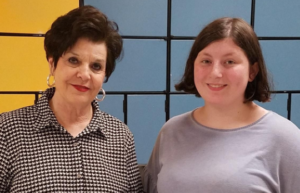As we wrap up this series on the “5 C’s”, we want to give you four things you can do as a mentor in 2020 to help your students grow in these qualities (and into healthy adults).
For the past several weeks, we’ve been introducing five key character qualities that we can look to build into our students in 2020. These qualities are known as “The Five C’s of Youth Development,” and include: competence, confidence, connection, character, and compassion.
(Note: the content below has been adapted from a graduation speech given by Bryan Stevenson at Williams College in the spring of 2016).
#1
Be present in the places in your community where there is great need. The specific needs in our communities may vary, but we all can see the effects of suffering, abuse, and neglect in our schools. As a mentor, you have the opportunity to be a consistent presence in the life of a student who may be facing the effects of these things at home on a daily basis. (These effects may be material, emotional, physical, or relational, and will vary depending on the student’s home life). Being present in kids’ lives speaks volumes to them, and gives you a greater sense of purpose as you care for them. So, let’s be consistently present in students’ lives this year as we serve as mentors in our community!
#2
Be an advocate for the youth in your school and community. Today’s youth are often stereotyped, misunderstood, or misjudged; and that only hurts their development into healthy adults. If we want our students to grow in the “5 C” qualities, we need to be willing to help change the narrative of how youth are viewed. As a mentor, you have the opportunity to be an advocate for your student as you help them grow into healthy members of the communities we live in. So, let’s be committed to changing the narrative surrounding our youth by helping them break the negative stereotypes, and standing with them as they continue to grow and develop into healthy adults.
Check back next week as we look at two more things you can do as a mentor in 2020 to help your students grow into healthy adults.
–Jason Matthews, BTO Mentor Coach
 Molly had the opportunity to meet a mentor in middle school, and felt it was really helpful to have her mentor continue with her as she moved to high school. Having an existing relationship with her mentor really eased her anxiety with the transition. She also really enjoyed the thoughtful notes her mentor mailed to her during the summer even though they couldn’t meet. Throughout the year, Molly enjoys the conversations and art projects which makes their times together special. She loves having a friendly adult who really cares about her and is not a parent. “She likes to hear about my life and really does care. She doesn’t have to be here. She encourages me and asks about my life in school and at home. It makes me want to work harder, and I really enjoy her perspective. My mentor has helped me be more outgoing and try new things.”
Molly had the opportunity to meet a mentor in middle school, and felt it was really helpful to have her mentor continue with her as she moved to high school. Having an existing relationship with her mentor really eased her anxiety with the transition. She also really enjoyed the thoughtful notes her mentor mailed to her during the summer even though they couldn’t meet. Throughout the year, Molly enjoys the conversations and art projects which makes their times together special. She loves having a friendly adult who really cares about her and is not a parent. “She likes to hear about my life and really does care. She doesn’t have to be here. She encourages me and asks about my life in school and at home. It makes me want to work harder, and I really enjoy her perspective. My mentor has helped me be more outgoing and try new things.”

